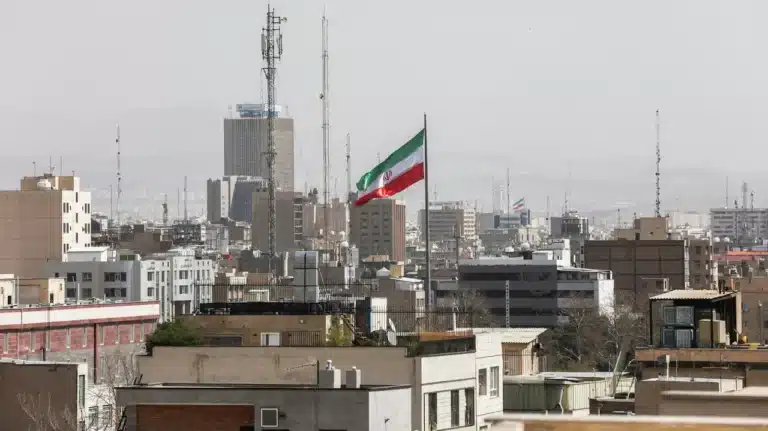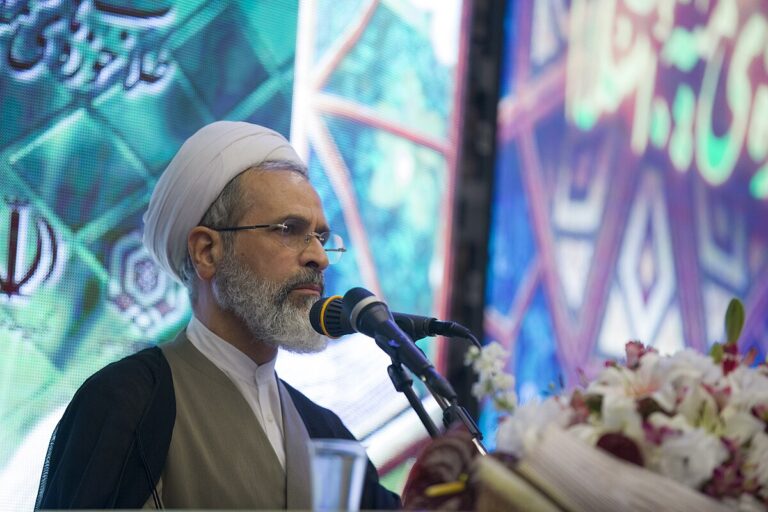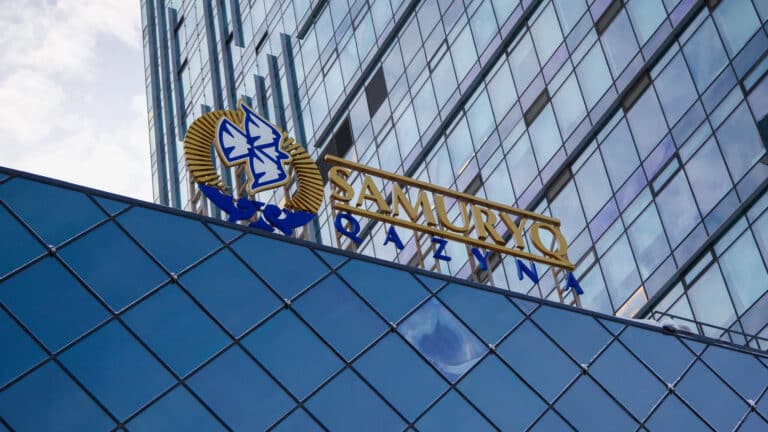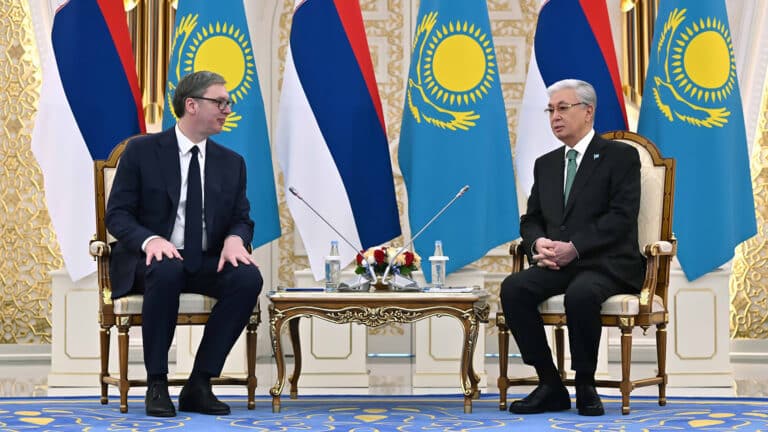Mining farms in Kazakhstan might be a subject of the new tax: one tenge per kilowatt per hour of electricity consumed during the mining process. The new requirement is a part of amendments to the Tax Code of Kazakhstan, which were approved by Mazhilis and are now under review in Senat (the upper chamber of the parliament). According to deputies, the new rule won’t allow industry players to hide from taxation. However, miners believe that the new requirement is just a new tax for all who are engaged in cloud computing, including miners and data centers.
No one knows how many mining farms work in Kazakhstan because if you are going to launch one, you won’t be required to get a license. However, the Ministry of Digital Development, Innovations, and Aerospace Industry of the Republic of Kazakhstan may have some data. On May 13, head of agency Bagdat Musin said that there are 13 mining farms in Kazakhstan.
Foreign sources assume that Kazakhstan may be rated as a leader in the area of mining. In the spring of 2020, the country accounted for 6.17% of all machines designed for bitcoin mining, according to Tokeninsight. In other words, Kazakhstan is right behind such giants as China (65% of mining), the USA (7.24%), and Russian (6.9%). The tally of 6% may be equivalent to $18–25 million per month as the ministry reported.
This market has been getting close attention from Kazakhstani authorities for years. Thus, in the summer of 2020 Askar Zhumagaliev, then-minister of digital development, said that Kazakhstan can get «300 billion of digital investments for mining» over three years. And it is true: Kazakhstan is a place where among miners are Germans, Japanese, and others attracted by Kazakhstan’s invitation.
The person who initiated a set of amendments to the Tax Code is Deputy Albert Rau. According to a clarification note to the draft law, the state regulation of mining and official promotion of the industry are intended to get an additional financial resource for the state budget and stop uncontrolled electricity consumption by mining farms.
The new tax fee of one tenge per one kilowatt per hour for miners would enter into force starting from January 1, 2022, if the draft law is adopted.
In an interview with the Kursiv edition, Albert Rau noted that his major goal is to bring the mining industry in from the cold.
«We have to adjust our legislation with real-life because as a matter of fact mining work in the country it is done in a parallel reality,» he said.
According to the draft law, all data about payers should be collected by an authorized agency in the sphere of information security over each quarter.
Technically, it is not a big deal to find mining farms; the energy system can identify them by a high level of electricity consumption. However, there are no suggestions to punish those miners who may refuse to pay, Rau underlines, because one tenge per kilowatt is a symbolic fee rather than a real one. And this move is designed to just start this huge process of administration. Moreover, when the value of cryptocurrency is rising, the profit of miners also gets higher due to extremely low electricity prices, according to the deputy.
It’s not easy to find out how much money the state budget can get because the structure of the industry is unclear. Data Center Industry and Blockchain Association says that miners consume as much as 3.3% of all electricity produced in Kazakhstan. The total energy consumption in 2020 was about 107.5 billion kilowatts per hour which means that 3.3% of this tally is 3.548 billion kilowatts per hour or $8.2 million if miners would have paid an additional tax.
However, the association, which represents the interests of many miners in Kazakhstan, doesn’t even try to hide their frustration.
«Implementation of a new additional tax in a specific industry, in this case in the mining industry, can cause a precedent that would affect Kazakhstan in terms of investment attractiveness. Investors are used to evaluating the risk of regulation impact and would prefer more stable and reliable jurisdictions,» said the president of the association Alan Dorjiev.
In Kazakhstan, electricity prices have been changed several times and now are similar to prices in the U.S., Iceland or Norway, noted Dorjiev. If the additional tax will be adopted, it would be a kind of signal to miners and data centers forcing them to move to another place. It won’t be good for the industry and the entire country.
According to a representative of one of the biggest mining companies in Kazakhstan, who asked to keep his name confidential, the work of miners is strongly dependent on the electricity price because it accounts for 95% of all costs.
«Cap rates for electricity are not stable; the government changes them all the time. Last year it changed prices twice. This year the tariff was changed on April 1. Given the amount of our consumption, this is a really big sum of money,» he said.
This company has a foreign investor, who financed an acquisition of new equipment, and the situation with tariff changes makes him unhappy. An additional tax, which looks like a second electricity bill, doesn’t fix the situation.
«If the one tenge per kilowatt tax will be implemented, our investor may start looking for another country,» the representative of the mining farm said.
Akzhol Berkaliyev, who represents another mining company, noted that the core nature of the cryptocurrency market is unstable. Investors lose their money each time bitcoin prices go down.
«Kazakhstan is very active in mining that attracts foreign investors. They have chosen our country because of cheap electricity and now the parliament wants to bring them in from the cold to get more cash as a tax and to get it under control. But this move can affect the entire industry and foreign investors would leave us behind. Look at Russia, they have the same cheap electricity,» he said.
«This is not a good decision for the mining industry,» Berkaliyev added.
Meanwhile, the Data Center Industry and Blockchain Association says that the parliament’s initiative was not discussed with the Ministry of Digital Development, Ministry of Economy and National Chamber of Entrepreneurs. Kursiv has asked the digital ministry for comments, but no response was given at the moment this article has been written.













